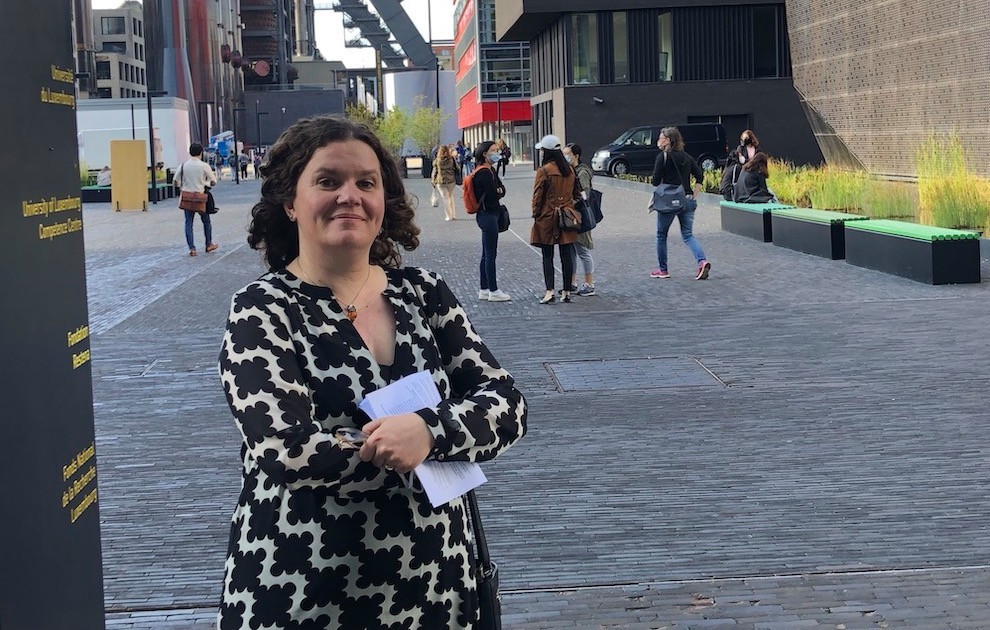The problem of housing in Luxembourg is well known, with figures that are always climbing to new heights. Even though rental prices have risen less than sales prices on average in recent years, finding accommodation is still very difficult. And even more so for students, such as those enrolled at Uni.lu on the Belval side.
1,100 flats for 6,700 students
"We have about 1,100 rooms and studios available for our students. These are properties that do not belong to us but that we manage," explains Catherine Léglu, vice-rector of the Uni. The accommodations are located in Belval and but also in Esch-sur-Alzette, Obercorn, Mondercange, Noertzange, Dudelange and Luxembourg City.
And according to the prices indicated on the University of Luxembourg's website, it costs between €275 for the cheapest rooms to rent (with shared bathroom and kitchen) in some residences and up to €1,000 for a studio.
Low prices and priorities
"Lower than market prices,” the vice-rector continues. But the number of accommodation units remains insufficient for the 6,700 students, 50% of whom arrive from abroad (35% from a European Union country, 15% from outside the EU).
As a result, priorities are inevitably set. "Erasmus students who do not stay a full year are, for example, given priority. Given the length of their stay, they would not find other accommodation. And then there are other elements that we pay attention to. For example, students arriving from outside the European Union are not allowed to stay outside the borders of Luxembourg. Or that some Luxembourgers live far from the Esch region and therefore need local accommodation...".
In the end, one sixth of the students can be accommodated in housing managed by the Uni. This is a rather interesting proportion compared to what is done elsewhere. But it still leaves many people out in the cold. Students are encouraged by the University to explore the commercial rental market.
An employment or internship contract
In the private sector, prices are quite different from those charged by the Uni. In the capital, the average price of a room to rent is around €800 or €850. In Esch-sur-Alzette, it goes down a bit, to around €600.
But apart from the price, there is another problem that keeps students away from these rentals: the almost universal requirement to present a work or training contract. This is a guarantee for landlords that they will receive their rent at the end of each month. As a result, if students sometimes occupy these rooms, they are mainly those who have a (paid) internship at a company.
"This is a very Luxembourgish problem. Here, young adults aged 20 to 40 often live in flat shares before they can consider buying a property. And so, in a way, they are taking the place of students... And this puts a certain pressure on the market," explains Jérôme Ensch, financial director of Vauban & Fort, one of the co-living specialists in Luxembourg, a market in which demand is higher than supply...
Heading for France
At the university, requests for assistance from those who have not been able to obtain housing (there are several hundred of them each year) are processed on a case-by-case basis by a specialist team. They can provide information on student-friendly shared accommodation sites or direct transport to border regions.
There is already a certain potential in neighbouring countries. For example, in the area of Micheville, halfway between Villerupt and Audun-le-Tiche, on French soil, but a stone's throw from Belval, a lot of student accommodation has been built recently. Other projects are still in the pipeline.
The University of Luxembourg is obviously well aware of the problem of student housing and is seeking to find a solution. Even if this is obviously not its primary mission.
"We are a university under construction. With our international profile, we are building a culture where students are present and the number of students increases year after year. And that increases the demand for accommodation..." says Léglu. "We are therefore in a situation today where we need to have a strategy for the housing issue. We need it. And within a year, we want to have one."
This article was originally written in French for and has been translated and edited by Delano
